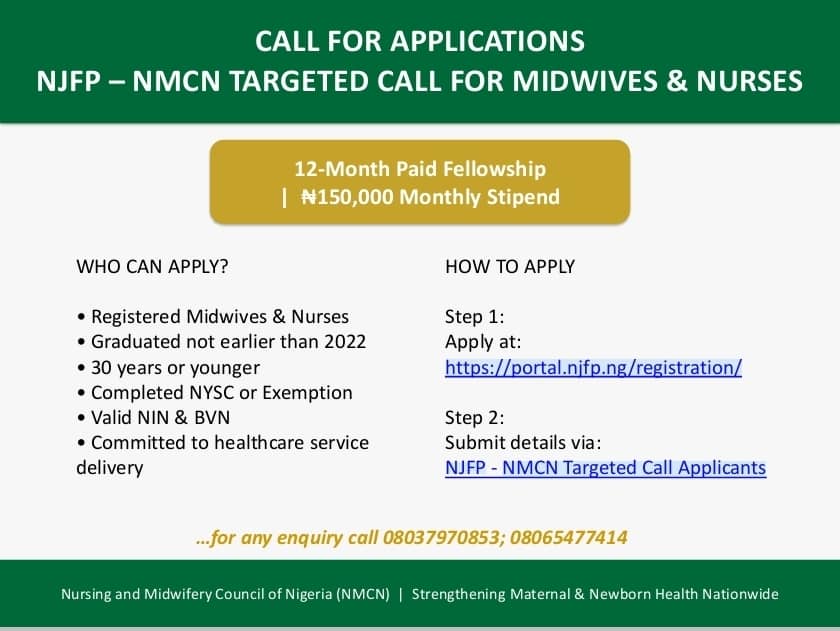Sixty-four-year-old Nnaemeka Onuorah has type 2 diabetes. He was tested positive to diabetes 24 years ago, and since then, he has been on drugs and special diet. Nnaemeka also developed hypertension five years after diabetes. Despite Nnaemeka’s efforts, he developed kidney problems and survived partial stroke at the age of 62. Nnaemeka later succumbed to kidney failure.
Mrs. Biodun Musa, aged 49, was unaware she had diabetes. She had a foot ulcer, which refused to heal and turned to gangrene. And to stop the gangrene from spreading, her foot was amputated. Biodun was diagnosed late of diabetes. She lost her sight a year later and died of stroke.
The 78-year-old John Obasanjo was diagnosed of diabetes at age of 45. And in the past 33 years, John is still living well with the disease. He is yet to develop any of the complications associated with type 2 diabetes including blindness, kidney failure, heart attacks, stroke and lower limb amputation.
Nine year-old Angel Duke has type 1 diabetes. He was diagnosed with the disease at age of six. Angel has been on daily doses of insulin injection to survive, which comes at a very high cost. Nnaemeka, Biodun, John and Angel represent the estimated 15.3 million Nigerians living with diabetes.
According to the World Health Organisation (WHO), there are two main forms of the disease. People with type 1 diabetes typically make none of their own insulin and therefore require insulin injections for survival. People with type 2 diabetes, the form that comprises some 90 per cent of all cases, usually produce their own insulin, but not enough or they are unable to use it properly. People with type 2 diabetes are typically overweight and sedentary.
As part of activities to mark the World Diabetes Day (WDD) on November 14, and reduce the burden of the disease, experts have warned that over time, high blood sugars can endanger every major organ system in the body, causing heart attacks, strokes, kidney failure, blindness, impotence and infections that can lead to amputations.
They, however, said that if properly treated, the impact of diabetes could be minimised. Even people with type 1 diabetes can live long and healthy lives if they keep their blood sugars under tight control.WDD was created in 1991 by International Diabetes Federation (IDF) as WHO’s response to growing concerns about the escalating health threat posed by diabetes.
WDD is the world’s largest diabetes awareness campaign with events organised in more than 100 countries in 2014 and dedicated advocacy activities around G7, United Nations (U.N.) General Assembly and G20.It unites the global diabetes community to produce a powerful voice for diabetes awareness and advocacy. WDD is a year-long campaign to reflect the realities of dealing with a chronic condition.
According to the Diabetes Association of Nigeria (DAN), the prevalence in Nigeria varies from 0.65 per cent in rural Mangu (North), 6.8 per cent in Port Harcourt to 11.0 per cent in urban Lagos, and it is associated with a high morbidity and mortality.
Health Minister, Prof. Isaac Adewole, in a chat with journalists ahead of the WDD, said the Federal Government has outlined six critical strategies to reduce the risk factors associated with diabetes and Non-Communicable Diseases (NCDs) in Nigeria. Adewole said the ministry has adopted the global monitoring framework for NCDs, development of a National Diabetes Plan and Policy as some of the approaches to stemming the tide of diabetes in Nigeria. Others include increased monitoring and surveillance systems, engagement and right, improved access to care and sustainable financing for management of diabetes.
 According to him, the ministry had adopted the global framework, which focuses on strengthening data collection for the global burden of the disease.Adewole added: “We have developed a National Policy and Strategic Plan of Action on NCD and a National Nutritional Guideline on NCD Prevention, Control and Management. The document lists our local food items with glycaemic index, which provide Nigerians with information to make informed decision on food choices.’’
According to him, the ministry had adopted the global framework, which focuses on strengthening data collection for the global burden of the disease.Adewole added: “We have developed a National Policy and Strategic Plan of Action on NCD and a National Nutritional Guideline on NCD Prevention, Control and Management. The document lists our local food items with glycaemic index, which provide Nigerians with information to make informed decision on food choices.’’ The Minister said that the ministry was developing a framework for monitoring the surveillance of diabetes, saying that it will help monitor the trend in the incidence and prevalence of diabetes in Nigeria. He said it would also incorporate the management of chronic illness into the benefit package to be delivered to Nigerians at Primary Care Level.
He said the Tobacco Control Act 2015 will further help in implementing stringent tobacco control measures given that tobacco use interferes with wound healing and blood vessels integrity vis-à-vis diabetes management.
Adewole called on ministries and other government institutions to be part of the campaign and help in regulating the cross border marketing of foods with high saturated fats, trans-fatty acids and free sugars. He also urged Nigerians to learn and identify the risk factors associated with diabetes and take step to avoid them.
The minister advised that Nigerians should maintain a healthy weight, eat healthy food and remain physically active. He advised diabetic patients to adhere to doctor’s advice and keep appointment with their doctors.
Dr. Anthonia Okeoghene Ogbera of the Diabetes Clinic at the Lagos State University Teaching Hospital (LASUTH) Ikeja, said diabetes mellitus (DM) is a diverse group of metabolic disorders that is often associated with a high disease burden in developing countries such as Nigeria.
Ogbera in her recent research published in World Journal of Diabetes said: “In the early 1990s, not much was known about DM in Nigeria and traditionally, people related DM to ‘curses’ or ‘hexes’ and diagnosis was made based on blood or urinary tests for glucose. Currently, oral hypoglycaemic agents but not insulin are readily accessible and acceptable to persons with DM. The cost of diabetes care is borne in most instances by individuals and often payment is ‘out of pocket’-this being a sequel of a poorly functional national health insurance scheme.
“An insulin requiring individual on a minimum wage would spend 29 per cent of his monthly income on insulin. Complementary and alternative medicines are widely used by persons with DM and form an integral component of DM care. Towards reducing the burden of DM in Nigeria, we suggest that there be concerted efforts by healthcare professionals and stakeholders in the health industry to put in place preventative measures, a better functioning health insurance scheme and a structured DM programme.”
The study is titled “Diabetes mellitus in Nigeria: The past, present and future.”Ogbera who is also an executive member of Nigerian Society of Endocrinology and Metabolism (NSEM), said the key issues with regard to diabetes in the future relate to the increasing population of Nigerians, increasing life expectancy of Nigerians, projected increase in the incidence and prevalence of diabetes, low per capita income of most Nigerians, poorly developed health care infrastructure and the current situation where the predominant means of procuring health services is “out of pocket” payment.
According to her, these factors will result in increased numbers of persons with the complications of diabetes particularly against the backdrop of constrained health budget by various tiers of governments.
The prevention and improved management of diabetes, she stressed, would require cooperation between the government and the health sector. She also hammered the need for preventive programmes such as enlightenment campaigns on the risk factors of diabetes. Government at all levels will need to improve health care funding.
Besides, she canvassed collaboration between healthcare providers, the pharmaceutical industries, policy makers and National Agency for Food and Drug Administration and Control (NAFDAC) to ensure adequate regulation of the importation, local manufacture and use of anti-diabetic medications in Nigeria.
She said whilst the provision of continuous blood glucose monitoring systems are expensive, the use of standardized glucometers and test strips particularly for persons on multiple insulin injections needs to be encouraged.
Dr. Sunny Chinenye of the DAN said most Nigerians living with diabetes have suboptimal control, are hypertensives and have chronic complications, while recommending “improved quality of care and treatment to-target” to reduce diabetes-related morbidity and mortality.
Chinenye said: “The rising prevalence of diabetes as well as its associated morbidity/mortality, preventive measures and effective treatments are well recognized. However, in practice this knowledge is under-utilized because only about a third of Nigerians living with diabetes achieve optimum targets (glycaemic control, blood pressure, lipids and weight).”
By: Chukwuma Muanya
The Guardian News
ABUJA: Training Schedule for Basic Life Support BLS, Pediatric Advanced Life Support (PALS), Advanced Cardiovascular Life Support ACLS, First Aid, CPR, AED
PORTHARCOURT: Training Schedule for Basic Life Support BLS, Pediatric Advanced Life Support (PALS), Advanced Cardiovascular Life Support ACLS, First Aid, CPR, AED
LAGOS: Training Schedule for Basic Life Support BLS, Pediatric Advanced Life Support (PALS), Advanced Cardiovascular Life Support ACLS, First Aid, CPR, AED
STOP paying for airtime and electricity, Let your phone pay its bills with ScreenT





